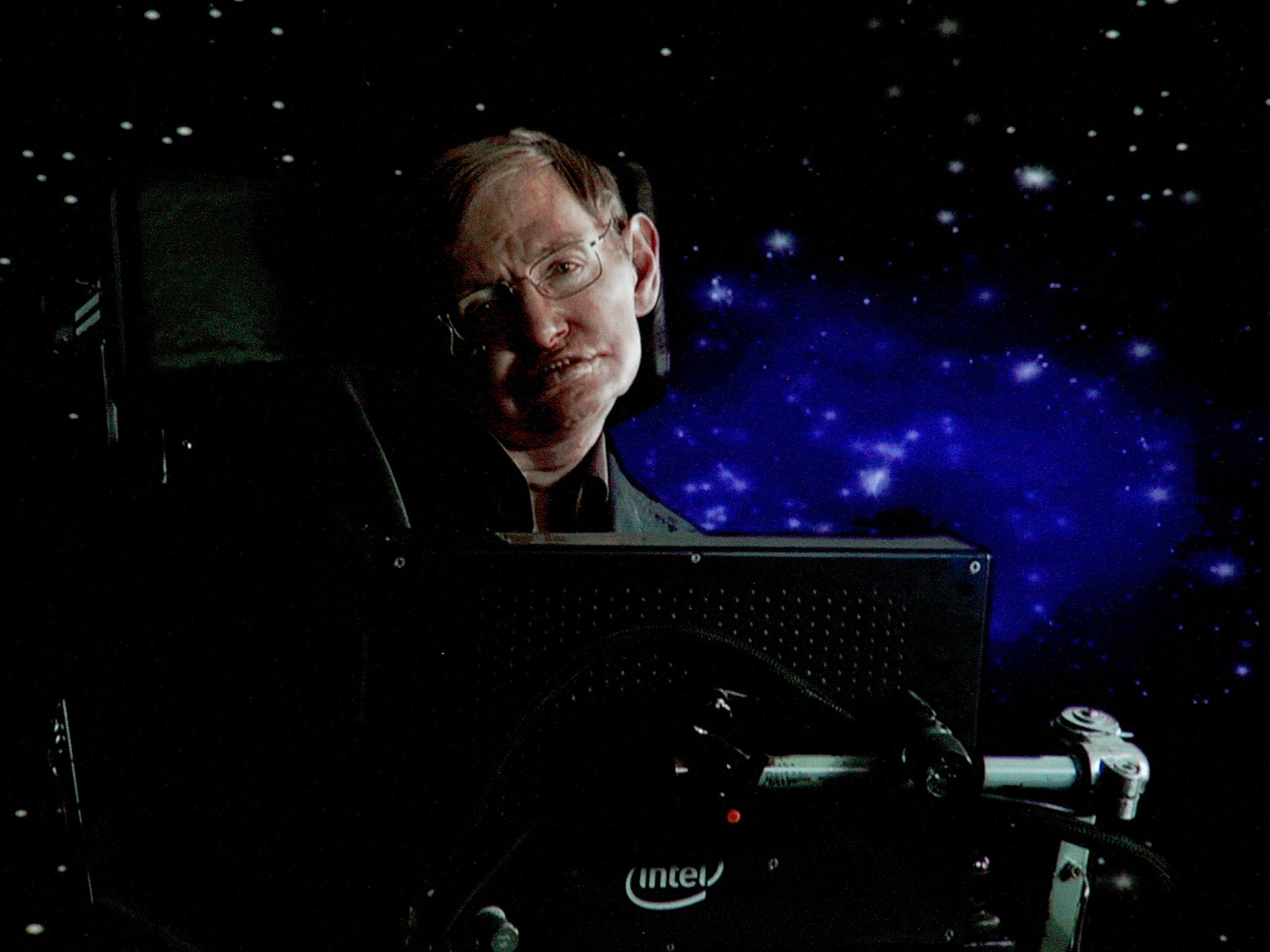Stephen Hawking: Humanity could make black holes into power stations
Small black holes could be harnessed and provide easily enough power for the Earth, physicist says — but they might also fall through the ground and into the centre of the Earth

Your support helps us to tell the story
From reproductive rights to climate change to Big Tech, The Independent is on the ground when the story is developing. Whether it's investigating the financials of Elon Musk's pro-Trump PAC or producing our latest documentary, 'The A Word', which shines a light on the American women fighting for reproductive rights, we know how important it is to parse out the facts from the messaging.
At such a critical moment in US history, we need reporters on the ground. Your donation allows us to keep sending journalists to speak to both sides of the story.
The Independent is trusted by Americans across the entire political spectrum. And unlike many other quality news outlets, we choose not to lock Americans out of our reporting and analysis with paywalls. We believe quality journalism should be available to everyone, paid for by those who can afford it.
Your support makes all the difference.Small black holes could be turned into power stations, according to Stephen Hawking.
The universe could have mountain-sized black holes that could provide enough power to run the entire world’s electricity supply, Professor Hawking has claimed.
A huge black hole might be impossible to detect — and despite the fact that they almost certainly exist, the fact that humanity hasn’t been able to observe one has been credited with keeping Professor Hawking from winning a Nobel prize. But a much smaller one, the size of a mountain, would be spewing out rays that could be harnessed and power the Earth.
“A mountain-sized black hole would give off X-rays and gamma rays, at a rate of about 10 million megawatts, enough to power the world's electricity supply,” Professor Hawking said during the second of his Reith Lectures.
But actually getting hold of that energy would be difficult without unleashing the power of the black hole on ourselves, he warned.
“It wouldn't be easy however, to harness a mini black hole. You couldn't keep it in a power station, because it would drop through the floor and end up at the centre of the Earth.”
Instead, we would have to hold it at a safe enough distance to stay secure, but close enough that we could get hold of all of the energy it was letting out.
“If we had such a black hole, about the only way to keep hold of it would be to have it in orbit around the Earth.
“People have searched for mini black holes of this mass, but have so far not found any. This is a pity, because if they had I would have got a Nobel Prize.”
But even if we don’t find one in space, that might not be the end of the plan to harness their power.
“Another possibility, however, is that we might be able to create micro black holes in the extra dimensions of space time,” Professor Hawking said.
Join our commenting forum
Join thought-provoking conversations, follow other Independent readers and see their replies
Comments